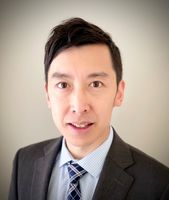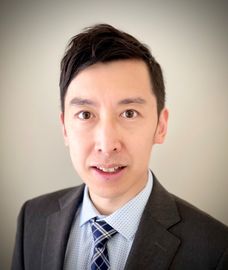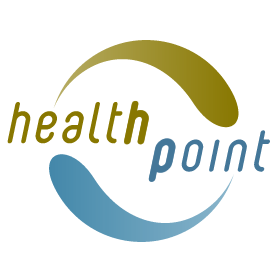Central Auckland, East Auckland, North Auckland, South Auckland, West Auckland > Private Hospitals & Specialists >
Hogan Yeung - Shoulder and Elbow Orthopaedic Surgeon
Private Service, Orthopaedics
Description
Hogan is a fellowship trained shoulder and elbow surgeon. He grew up in Auckland and graduated from University of Auckland, School of Medicine in 2008. He completed the New Zealand Orthopaedic Association training programme and became a Fellow of the Royal Australasian College of Surgeons in 2018.
Hogan then spent two years abroad to gain further experience in shoulder and elbow surgery. His first year of subspecialty training was at Coastal Orthopaedics and Sports Injuries in Gosford, New South Wales under the supervision of an innovative shoulder and elbow specialist. This was followed by another year at North Bristol NHS Trust, UK, where he worked with a number of high volume upper limb surgeons.
Hogan has a consultant appointment at Middlemore Hospital. He works in private practice and has consulting rooms at Ascot Office Park and Cavendish Clinic. Urgent appointments are available.
Hogan will assess and treat, both non-operatively and operatively, all shoulder and elbow conditions.
- Shoulder
- Rotator cuff tear
- Shoulder instability
- Frozen shoulder
- Osteoarthritis
- AC joint dislocation
- Long head of biceps pathology
- SLAP tears
- Clavicle fracture
- Elbow
- Tennis and Golfer’s elbow
- Osteoarthritis
- Loose bodies
- Cubital tunnel syndrome
- Elbow instability
- Distal biceps tendon rupture
Consultants
-

Mr Hogan Yeung
Orthopaedic Surgeon
Referral Expectations
You need to bring with you to your appointment:
Fees and Charges Description
Hogan is a Southern Cross Affiliated Provider, NIB preferred provider, and is ACC Accredited
Hours
Cavendish Clinic, 175 Cavendish Drive, Manukau, Auckland
8:30am-5pm Monday to Friday
Closed on public holidays
Procedures / Treatments
For elderly patients joint replacement surgery is commonly required to treat damaged joints from wearing out, arthritis or other forms of joint disease including rheumatoid arthritis. In these procedures the damaged joint surface is removed and replaced with artificial surfaces normally made from metal (chromium cobalt alloy, titanium), plastic (high density polyethelene) or ceramic which act as alternate bearing surfaces for the damaged joint. These operations are major procedures which require the patient to be in hospital for several days and followed by a significant period of rehabilitation. The hospital has several ways of approaching the procedure for replacement and the specifics for the procedure will be covered at the time of assessment and booking of surgery. Occasionally blood transfusions are required; if you have some concerns raise this with your surgeon during consultation.
For elderly patients joint replacement surgery is commonly required to treat damaged joints from wearing out, arthritis or other forms of joint disease including rheumatoid arthritis. In these procedures the damaged joint surface is removed and replaced with artificial surfaces normally made from metal (chromium cobalt alloy, titanium), plastic (high density polyethelene) or ceramic which act as alternate bearing surfaces for the damaged joint. These operations are major procedures which require the patient to be in hospital for several days and followed by a significant period of rehabilitation. The hospital has several ways of approaching the procedure for replacement and the specifics for the procedure will be covered at the time of assessment and booking of surgery. Occasionally blood transfusions are required; if you have some concerns raise this with your surgeon during consultation.
For elderly patients joint replacement surgery is commonly required to treat damaged joints from wearing out, arthritis or other forms of joint disease including rheumatoid arthritis. In these procedures the damaged joint surface is removed and replaced with artificial surfaces normally made from metal (chromium cobalt alloy, titanium), plastic (high density polyethelene) or ceramic which act as alternate bearing surfaces for the damaged joint.
These operations are major procedures which require the patient to be in hospital for several days and followed by a significant period of rehabilitation. The hospital has several ways of approaching the procedure for replacement and the specifics for the procedure will be covered at the time of assessment and booking of surgery.
Occasionally blood transfusions are required; if you have some concerns raise this with your surgeon during consultation.
Osteotomy is the division of a crooked or bent bone to improve alignment of the limb. These procedures normally involve some form of internal fixation, such as rods or plates, or external fixation which involves external wires and pins to hold the bone. The type of procedure for fixation will be explained when the surgery is planned.
Osteotomy is the division of a crooked or bent bone to improve alignment of the limb. These procedures normally involve some form of internal fixation, such as rods or plates, or external fixation which involves external wires and pins to hold the bone. The type of procedure for fixation will be explained when the surgery is planned.
Osteotomy is the division of a crooked or bent bone to improve alignment of the limb.
These procedures normally involve some form of internal fixation, such as rods or plates, or external fixation which involves external wires and pins to hold the bone. The type of procedure for fixation will be explained when the surgery is planned.
A large number of orthopaedic procedures on joints are performed using an arthroscope, where a fibre optic telescope is used to look inside the joint. Through this type of keyhole surgery, fine instruments can be introduced through small incisions (portals) to allow surgery to be performed without the need for large cuts. This allows many procedures to be performed as a day stay and allows quicker return to normal function of the joint. Arthroscopic surgery is less painful than open surgery and decreases the risk of healing problems. Arthroscopy allows access to parts of the joints which can not be accessed by other types of surgery.
A large number of orthopaedic procedures on joints are performed using an arthroscope, where a fibre optic telescope is used to look inside the joint. Through this type of keyhole surgery, fine instruments can be introduced through small incisions (portals) to allow surgery to be performed without the need for large cuts. This allows many procedures to be performed as a day stay and allows quicker return to normal function of the joint. Arthroscopic surgery is less painful than open surgery and decreases the risk of healing problems. Arthroscopy allows access to parts of the joints which can not be accessed by other types of surgery.
A large number of orthopaedic procedures on joints are performed using an arthroscope, where a fibre optic telescope is used to look inside the joint. Through this type of keyhole surgery, fine instruments can be introduced through small incisions (portals) to allow surgery to be performed without the need for large cuts. This allows many procedures to be performed as a day stay and allows quicker return to normal function of the joint.
Arthroscopic surgery is less painful than open surgery and decreases the risk of healing problems. Arthroscopy allows access to parts of the joints which can not be accessed by other types of surgery.
In many cases tendons will be lengthened to improve the muscle balance around a joint or tendons will be transferred to give overall better joint function. This occurs in children with neuromuscular conditions but also applies to a number of other conditions. Most of these procedures involve some sort of splintage after the surgery followed by a period of rehabilitation, normally supervised by a physiotherapist.
In many cases tendons will be lengthened to improve the muscle balance around a joint or tendons will be transferred to give overall better joint function. This occurs in children with neuromuscular conditions but also applies to a number of other conditions. Most of these procedures involve some sort of splintage after the surgery followed by a period of rehabilitation, normally supervised by a physiotherapist.
In many cases tendons will be lengthened to improve the muscle balance around a joint or tendons will be transferred to give overall better joint function. This occurs in children with neuromuscular conditions but also applies to a number of other conditions.
Most of these procedures involve some sort of splintage after the surgery followed by a period of rehabilitation, normally supervised by a physiotherapist.
Public Transport
The Auckland Transport website is a good resource to plan your public transport options.
Parking
PARKING AT ASCOT OFFICE PARK
Mr Yeung is located on Level 2, Building C, 95 Ascot Office Park.
Limited parking is available underneath the building. Please park in the black and yellow ‘ORTHOPAEDICS’ car parks only.
Turn left from when you come in the driveway to take the ramp down to the basement parking. Orthopaedics car parks are situated in front of the first lift. Go through the car park and take the first right and turn right again (look for the big black and yellow signs).
IF THESE PARKS ARE FULL, YOU CAN PARK IN THE PAY CAR PARK ACROSS THE ROAD OR IN THE ELLERSLIE RACECOURSE CAR PARK
Pharmacy
Find your nearest pharmacy here

Contact Details
Cavendish Clinic, 175 Cavendish Drive, Manukau, Auckland
South Auckland
-
Phone
(09) 523 2766
-
Fax
(09) 522 0786
Healthlink EDI
orthogrp
Email
175 Cavendish Drive
Papatoetoe
Auckland
Auckland 2104
Street Address
175 Cavendish Drive
Papatoetoe
Auckland
Auckland 2104
Postal Address
PO Box 74446
Greenlane
Auckland 1546
Ascot Office Park, 93-95 Ascot Avenue, Greenlane, Auckland
Central Auckland
-
Phone
(09) 523 2766
-
Fax
(09) 522 0786
Healthlink EDI
orthogrp
Email
Ormiston Hospital Specialist Centre & Consulting Suites, 125 Ormiston Road, Flat Bush, Auckland
South Auckland
-
Phone
(09) 523 2766
-
Fax
(09) 522 0786
Healthlink EDI
orthogrp
Email
Was this page helpful?
This page was last updated at 10:39AM on December 18, 2023. This information is reviewed and edited by Hogan Yeung - Shoulder and Elbow Orthopaedic Surgeon.
